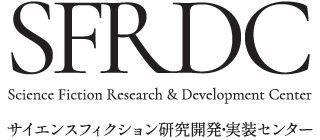認知科学グループについて
新たな人間社会を形成する発達途中の子どもたちにおける、物語および想像力の働きを分析する。物語を作り、想像する過程を認知心理学的な手法により分析する。
これにより、ポストヒューマニティ社会の想像力がいかに獲得されてゆくかを探求する。物語作成や想像力の発達に関する実験研究を行い、子どもたちの想像力の育成に最も効果的な教育方法を特定するための実証研究を計画する。
主な研究テーマ
- 物語創作が認知発達・創造性に及ぼす影響の実験研究
- 想像力育成カリキュラム・教材設計と有効性検証
- 物語的思考とメタ認知・将来志向性の関連
- 学校や科学館での実践と縦断評価
- 文化・年齢差を視野に入れた国際比較研究
グループの特色
| 活動領域 | 教育学、認知心理学、発達心理、学習科学 |
|---|---|
| 協働対象 | 学校(小中高)、教員、保護者、博物館・科学館 |
| 活動形態 | 実験・実践、ワークショップ、アンケート・事後調査 |
| 使用技術 | 心理測度、行動実験、学習ログ収集・分析 |
| 連携機関 | 大学教育学系・人間科学系、科学館、自治体 |
Cognitive Science Group
Analyzes the role of narrative and imagination in children, who are developing and shaping new human societies. It examines the processes of creating and imagining stories using cognitive psychological methods.
This explores how the imagination for a post-humanity society is acquired. The group conducts experimental research on narrative creation and the development of imagination, planning empirical studies to identify the most effective educational methods for fostering children's imagination.
Key Research Themes
- Experimental studies on how narrative creation affects cognition and creativity
- Design and evaluation of imagination-building curricula and materials
- Links between narrative thinking, metacognition, and future-oriented reasoning
- School and science-museum implementations with longitudinal assessment
- Cross-cultural and age-group comparisons
Distinctive Features
| Domains | Education, cognitive science, developmental psychology, learning sciences |
|---|---|
| Collaborators | K-12 schools, teachers, caregivers, museums/science centers |
| Modes | Lab/field experiments, workshops, surveys & follow-ups |
| Technologies | Psychometrics, behavioral tasks, learning-log collection/analysis |
| Partners | Education/human-sciences faculties, museums, municipal boards of education |
